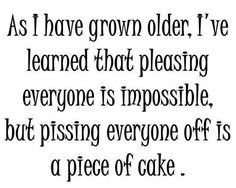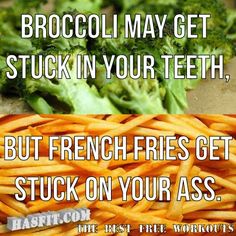You are using an out of date browser. It may not display this or other websites correctly.
You should upgrade or use an alternative browser.
You should upgrade or use an alternative browser.
Random Facts
- Thread starter Sammie
- Start date
UpstateNYUPSer(Ret)
Well-Known Member
How bad is it to skip the pasta rinse ??
Not bad at all.
It's actually your best option. Rinsing noodles washes away flavor and natural starch, which helps the yummy sauce stick. It's why some recipes suggest saving pasta water to use in the sauce.
I add a little bit of oil to the water before boiling. This keeps the pasta from sticking. I always rinse the pasta when it is done.
moreluck
golden ticket member
Use a large pot: Size matters. The pasta should be swimming in a sea of water because it will expand while cooking. If there is not enough water than the pasta will get mushy and sticky. The average pasta pot size is between 6 and 8 quarts, and it should be filled about 3/4 of the way or about 4-5 quarts with water for 1 pound of pasta.
Fill the pot with cold water: This goes for cooking anything with water. Hot water dissolves pollutants more quickly than cold, and some pipes contain lead that can leak into the water. Just to be safe, always use cold water from the tap and run the water for a little before using.
Heavily salt the water: Adding salt to the water is strictly for flavor. You want to salt the water as it is coming to a boil. While the pasta is cooking, it absorbs the salt adding just that extra touch to the overall meal. Do as Mario Batali does and salt the water until it “tastes like the sea.” To get that saltiness, Mark Ladner, executive chef at Del Posto, advisesto use about 1 tbsp. of salt per quart of water.
There is an old wives tale that says salt will also make the pasta water boil faster. This is not completely the case. Adding salt to water elevates the boiling point and to increase the boiling point of 1 quart of water by 1 degree Fahrenheit you would need 3 tablespoons of salt. And, that is way too much salt for anyone’s taste buds.
Do not put oil in the pot: As Lidia Bastianich has said, “Do not — I repeat, do not — add oil to your pasta cooking water! And that’s an order!”
Olive oil is said to prevent the pot from boiling over and prevent the pasta from sticking together. But, the general consensus is that it does more harm than good. It can prevent the sauce from sticking to the pasta. Since oil is less dense than water and is composed of hydrophobic molecules, it creates a layer across the top of the water. When the pasta is drained, it is poured through this oiled layer and leaves a fresh coat of oil on the pasta.
Fill the pot with cold water: This goes for cooking anything with water. Hot water dissolves pollutants more quickly than cold, and some pipes contain lead that can leak into the water. Just to be safe, always use cold water from the tap and run the water for a little before using.
Heavily salt the water: Adding salt to the water is strictly for flavor. You want to salt the water as it is coming to a boil. While the pasta is cooking, it absorbs the salt adding just that extra touch to the overall meal. Do as Mario Batali does and salt the water until it “tastes like the sea.” To get that saltiness, Mark Ladner, executive chef at Del Posto, advisesto use about 1 tbsp. of salt per quart of water.
There is an old wives tale that says salt will also make the pasta water boil faster. This is not completely the case. Adding salt to water elevates the boiling point and to increase the boiling point of 1 quart of water by 1 degree Fahrenheit you would need 3 tablespoons of salt. And, that is way too much salt for anyone’s taste buds.
Do not put oil in the pot: As Lidia Bastianich has said, “Do not — I repeat, do not — add oil to your pasta cooking water! And that’s an order!”
Olive oil is said to prevent the pot from boiling over and prevent the pasta from sticking together. But, the general consensus is that it does more harm than good. It can prevent the sauce from sticking to the pasta. Since oil is less dense than water and is composed of hydrophobic molecules, it creates a layer across the top of the water. When the pasta is drained, it is poured through this oiled layer and leaves a fresh coat of oil on the pasta.
moreluck
golden ticket member
What a handyman won't tell you:
Houses don't take care of themselves. It's on you to inspect yours at least once a year. Do you need to caulk around your windows and doors ? Are any shingles loose ? It's a lot less expensive to hire me to address those things than to replace them after years of neglected maintenance.
Michelle Crouch (Reader's Digest)
Houses don't take care of themselves. It's on you to inspect yours at least once a year. Do you need to caulk around your windows and doors ? Are any shingles loose ? It's a lot less expensive to hire me to address those things than to replace them after years of neglected maintenance.
Michelle Crouch (Reader's Digest)
Similar threads
- Replies
- 162
- Views
- 33K
- Replies
- 171
- Views
- 27K












